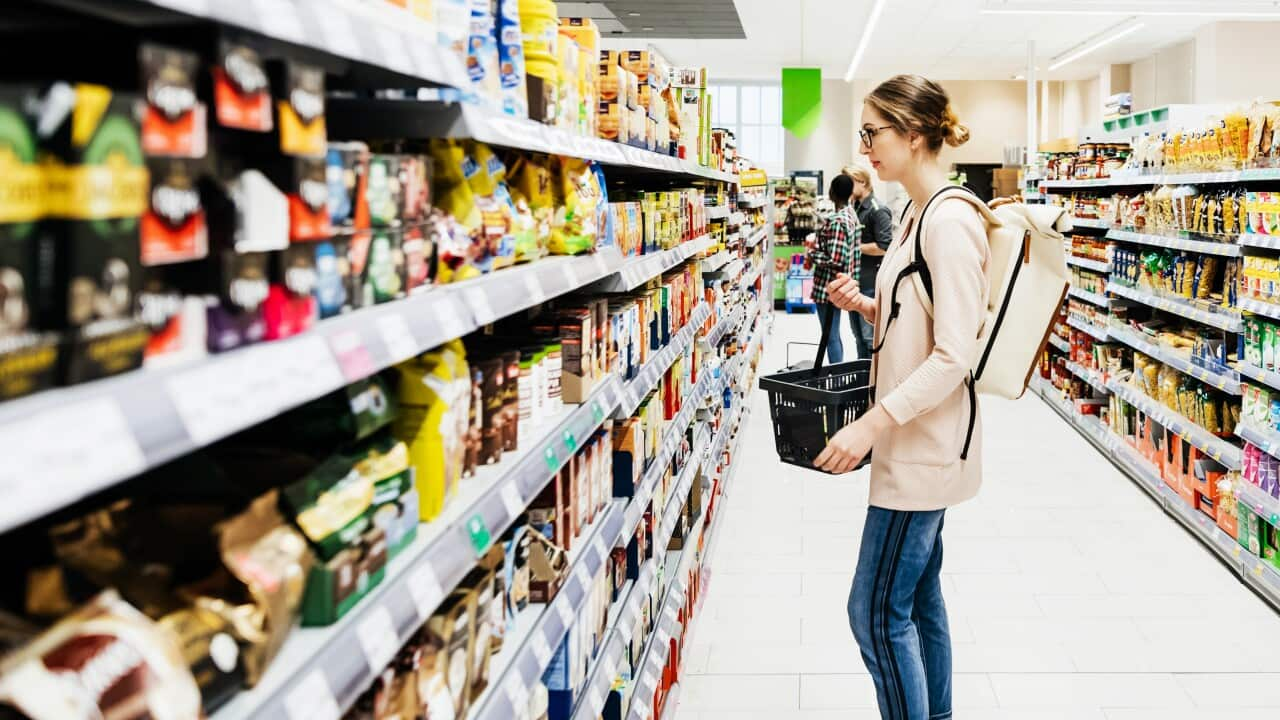Shoppers have endured rising prices for months now amid high inflation and while there are signs it's easing, a leading economist says hip-pocket pain at the checkout likely won't feel any less severe — for now at least.
That's despite Finance Minister Katy Gallagher's hopes that supermarkets would drop their prices as inflation and production costs cool.
The monthly Consumer Price Index (CPI), a measure of inflation, came in at 4.9 per cent for July down from 5.4 per cent in June, released on Wednesday.
Treasurer Jim Chalmers hailed the result as "pleasing", although the ABS noted that when volatile items, such as automotive fuel, fruit and vegetables and holiday travel, were stripped out, the fall was less dramatic — 5.8 per cent in July compared to 6.1 per cent the month before.
Still, it's believed inflation peaked in December and the monthly CPI figure has trended downward over the months since. The more comprehensive quarterly figure has too, and for the June quarter showed — down from 7.8 per cent in the December quarter.
Cooling inflation has fuelled hopes within the federal government that consumers will start to see lower prices on supermarket shelves.
"As those [production] costs moderate, you would hope to see some of the prices moderate," Senator Gallagher told ABC radio last week.
"As we see those causes of inflation moderate, you would expect to see prices go down."
But AMP chief economist Shane Oliver does not believe consumers will see much of a difference in the cost of their weekly shop.
Oliver points out that easing inflation does not mean that prices will fall, only that they are growing at a slower rate.
"There's no logic to say just because inflation is falling that they should be lowering their prices," Oliver said. "They can only do that on a sustained basis if their costs go down."
He said businesses indicated they were still facing cost pressures during the reporting season in August — in which Woolworths posted a $1.62 billion profit while Coles' result was $1.1 billion — in areas including wages and transport.
"For example, you're still paying $2 a litre or so for fuel; so for transport costs, the rate of increases may have slowed, but those transport costs are still high," Oliver said.
Corporations have been accused of hiking prices more than necessary and generating excessive profits that have fuelled inflation.
Such was the claim in , which found companies had raised prices well above elevated expenses. It said inflation would have been about 2-3 per cent — the Reserve Bank of Australia's (RBA) target band, which has been behind its series of interest rate hikes in a bid to curb it — if Australian firms weren't making excess profits for goods and services.
And the RBA, which for months pushed back on the suggestion that excess corporate profits were a driver of high inflation, acknowledged in "that some firms were indexing their prices, either implicitly or directly, to past inflation".
SBS News is not suggesting Coles and Woolworths have acted in this way.
Woolworths said last week as it announced its full-year results that food price growth started to moderate in the second half with prices even dropping for meat, fruit and vegetables. It expected prices to keep rising in some packaged categories.
Woolworths CEO Brad Banducci told ABC radio last week that the supermarket chain was working to reduce the cost of products on shelves, denying the company was price-gouging customers.
Meanwhile, Coles boss Leah Weckert said she was pleased headline inflation had moderated, but there was large price variation across supermarket categories.
Prices for meat and fresh produce - particularly cucumbers, broccoli, and capsicum - are deflating rapidly, while inflation of bakery and dairy products continues unabated, she said when announcing the supermarket's results.
The latest monthly inflation data showed that meat and seafood prices had not deflated but at 2.4 per cent, grew at a slightly slower rate than they did in June. Prices for fruit and vegetables, a volatile category, fell 5.4 per cent, while bread and cereal and dairy product prices grew at 9.9 and 12.7 per cent respectively.
"The bottom line is that it's still a bit too early to expect average supermarket prices to be falling," Oliver said.
"They (Coles and Woolworths) might engage in discounting but beyond that, it's more an environment where prices go up at a slower rate rather than fall."
So when might your trip to the supermarket feel a little less painful? When wages catch up, Oliver said.
He said most economists expect inflation to be about 3 per cent late next year or early 2025, which is also what the RBA forecasts.
"I think by the time we get to the second half next year, you'll see inflation down at about 3 per cent and wage growth will probably be about 4 per cent," Oliver said.
"You'll see real wage growth of around 1 per cent ... but it'll take a few years to completely reverse the deterioration that occurred when inflation got as high as about 8 per cent.
"It'll take a few years to fully reverse; I expect it's about three or four years away before that happens."












